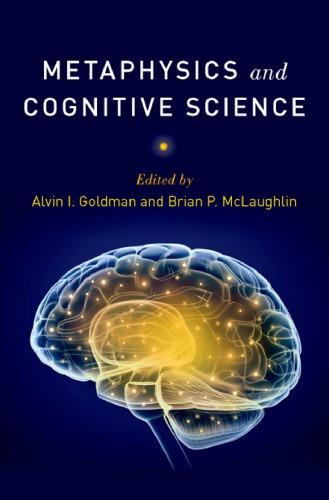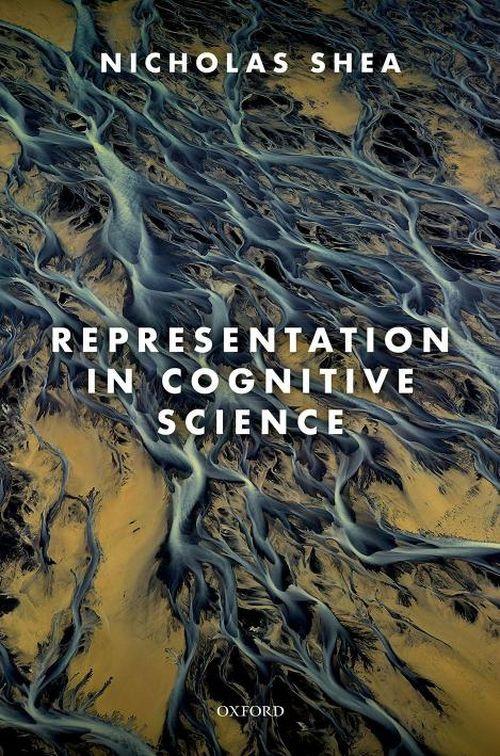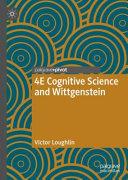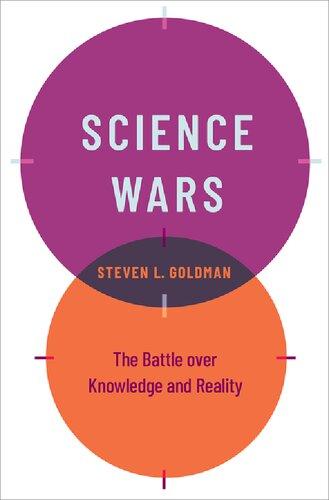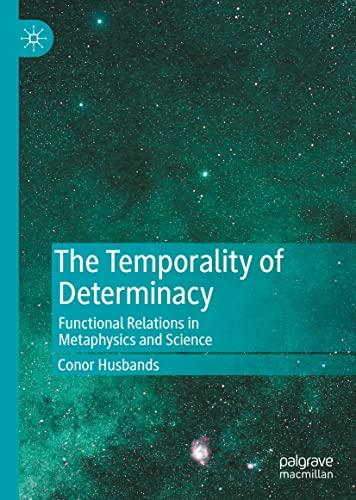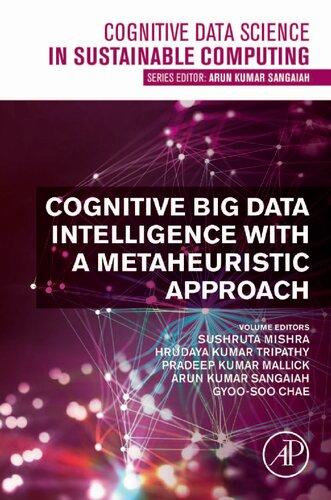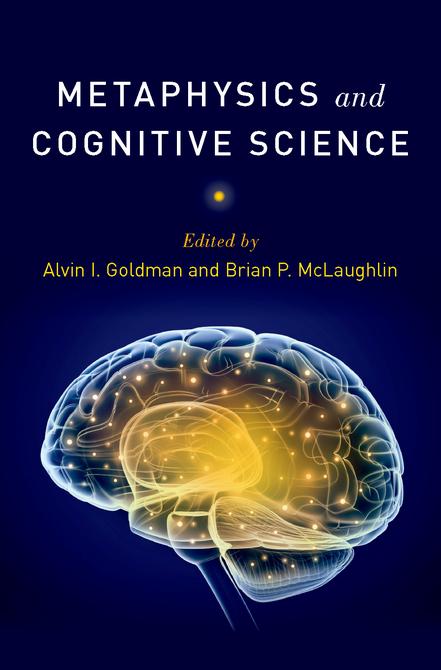Contributors
Mark Baker is Distinguished Professor of Linguistics and Cognitive Science at Rutgers University. He received his PhD in linguistics in 1985 from MIT and taught at McGill University in Montreal for twelve years before moving to Rutgers in 1998. He specializes in the syntax and morphology of less-studied languages, particularly those of the Americas, Africa, and Asia, with the goal of understanding the similarities and differences among languages on the largest scale, and their implications for an understanding of human cognition. He has written five research monographs, as well as numerous journal articles, and one book for a popular audience (The Atoms of Language, Basic Books, 2001). He is also coeditor of The Soul Hypothesis: Investigations into the Existence of the Soul (Continuum, 2011).
Craig Callender is Professor of Philosophy and Codirector of the Institute for Practical Ethics at the University of California, San Diego. Specializing in philosophy of science, he is especially interested in foundational issues concerning physics and time. He is the author of What Makes Time Special? (Oxford University Press, 2017).
Christopher Frugé is a PhD student in philosophy at Rutgers University. His research primarily focuses on metaphysics and ethics, and his interests extend to relevant epistemological issues.
Susan A. Gelman is Heinz Werner Distinguished University Professor of Psychology at the University of Michigan. She studies concepts and language in young children. She is especially interested in how children organize their experience into categories, how categories guide children’s reasoning, how children discover and reason about nonobvious aspects of the world, and the role of language in these processes. She is a fellow of the National Academy of Sciences, the American Academy of Arts and Sciences, the Association for Psychological Science, the American Psychological Association (Division 7), and the Cognitive Science Society. Her honors include the Developmental Psychology Mentor Award of the American Psychological Association and the G. Stanley Hall Award for Distinguished Contribution to Developmental Psychology (APA, Division 7).
Contributors
viii Alvin I. Goldman is Board of Governors Professor of Philosophy Emeritus at Rutgers University. His 160-plus papers, four monographs, several collections and festschrifts on his work span individual and social epistemology, action theory, philosophy of mind, cognitive science, and political philosophy. A past fellow of the Center for Advanced Study in the Behavioral Sciences, he is a member of the American Academy of Arts and Sciences. He has served as president of the American Philosophical Association and the Society for Philosophy and Psychology. Mark Johnston is Walter Cerf Professor of Philosophy at Princeton University, where he wrote his PhD, “Particulars and Persistence,” under the supervision of Saul Kripke. He is the author of many influential and widely reprinted articles in ontology, philosophy of mind, philosophical logic, and ethics, along with Saving God (Princeton University Press, 2009) and Surviving Death (Princeton University Press, 2010), two works that present a novel form of religious naturalism. Two volumes of his collected papers, Human Beings and The Obscure Object of Hallucination, will soon be forthcoming with Princeton University Press. He is currently working on a book entitled The Manifest, which explains how the world of lived experience can be very much as it appears to be, despite the discoveries of the physical and biological sciences.
Daniel Z. Korman is Professor of Philosophy at the University of California, Santa Barbara. He is the author of numerous articles in metaphysics. Much of his research has been devoted to the defense of a conservative metaphysics of material objects, according to which our natural, intuitive judgments about what objects there are and aren’t are more or less correct.
Nick Leonard is a graduate student in philosophy at Northwestern University. His research focuses on reasoning and rationality from both philosophical and psychological perspectives. His dissertation develops a view of epistemic rationality according to which there can be genuine rational indeterminacy; that is, it can be indeterminate which principles of rationality one should satisfy and thus indeterminate which doxastic attitudes one is permitted or required to have. He hopes that this view provides a systematic way of resolving epistemic dilemmas, points to a general decision-making procedure for agents who must act in the face of indeterminacy, and reveals an unexplored phenomenological dimension of being subject to conflicting rational requirements.
Sarah-Jane Leslie is 1943 Professor of Philosophy at Princeton University and the dean of the Graduate School. She is the author of numerous articles in philosophy and psychology and has published in journals such as Science, PNAS, Philosophical Review, and Noûs. Much of her work focuses on how we categorize and generalize information about the world around us. As part of this project, she examines how the language young children hear shapes their perception of social groups, and how
ix Contributors this relates to stereotyping and prejudice. Most recently, she has been examining gender gaps in educational and career choices, and her work on the topic was named as one of 2015’s most interesting scientific findings by Edge. She has delivered the Gareth Evans Memorial Lecture at Oxford University, the Daniel Greenberg Lecture at Reed College, and was the 2015 recipient of the Stanton Award from the Society for Philosophy and Psychology. Her work has been covered extensively in the media, including by the New York Times, the Washington Post, and the Wall Street Journal. She has appeared on NPR, WHYY, and CBC Radio.
John McCoy is an Assistant Professor of Marketing at the Wharton School of the University of Pennsylvania. His research seeks to undersand and model human judgement and decision making, and to improve crowd wisdom.
Brian P. McLaughlin is Distinguished Professor of Philosophy and Cognitive Science at Rutgers University and director of the Rutgers Cognitive Science Center. He has numerous publications in the philosophy of mind, metaphysics, and philosophical logic. His work in metaphysics has focused mainly on supervenience and emergence. His work in the philosophy of mind has focused mainly on consciousness, mental causation, self-knowledge and content-externalism, self-deception, delusions, the nature of cognitive architecture, the computational theory of mind, color perception, and visual perception of geometrical properties.
Friederike Moltmann is Research Director at the French Centre Nationale de la Recherche Scientifique (CNRS) and in recent years has been visiting researcher at New York University and visiting professor at the University of Padua. Her research focuses on the interface between natural language semantics and philosophy. She received a PhD in 1992 from the Massachusetts Institute of Technology and taught both linguistics and philosophy at various universities in the United States, the United Kingdom, France, and Italy. She is author of Parts and Wholes in Semantics (Oxford University Press, 1997) and Abstract Objects and the Semantics of Natural Language (Oxford University Press, 2013).
Shaun Nichols is Sherwin Scott Professor of Philosophy at the University of Arizona. His research is at the intersection of philosophy and psychology, and it has been funded by the National Institute of Health, the Templeton Foundation, and the Office of Naval Research. He has published three monographs and over one hundred articles.
L. A. Paul is Professor of Philosophy and Cognitive Science at Yale. Recent books and articles include Causation: A User’s Guide (coauthored with Ned Hall, Oxford University Press, 2013), Transformative Experience (Oxford University Press,
x 2014), “What you can’t expect when you’re expecting,” Res Philosophica (2015), and “Transformative treatments” (coauthored with Kieran Healy), Noûs (2017).
Contributors
Peter Railton is Kavka Distinguished University Professor and Perrin Professor of Philosophy at the University of Michigan, Ann Arbor. His main research has been in ethics, metaethics, moral psychology, and the philosophy of science.
Lance J. Rips is Professor of Psychology at Northwestern University. His research centers on human reasoning and concepts. He is the author of Lines of Thought (Oxford University Press, 2011), The Psychology of Proof (MIT Press, 1994), and The Psychology of Survey Response (with Roger Tourangeau and Kenneth Rasinski, Cambridge University Press, 2000). He has edited Reasoning: Studies of Human Inference and Its Foundations (with Jonathan Adler, Cambridge University Press, 2008) and Similarity and Symbols in Human Thinking (with Steven Sloman, MIT Press, 1998).
David Rose is a McDonnel Postdoctoral Fellow in the Philosophy, Neuroscience and Psychology Program at Washington University, St. Louis. He mainly works on issues at the intersection of metaphysics and cognitive science and epistemology and cognitive science and has published on these issues in venues such as the Journal of Philosophy, Noûs, Philosophical Studies, and Synthese
Jonathan Schaffer is Distinguished Professor of Philosophy at Rutgers University, New Brunswick. He holds a PhD from Rutgers in 1999, and has since worked at the University of Houston, the University of Massachusetts–Amherst, and the Australian National University, before returning to Rutgers in 2011. He works mainly in metaphysics, with interests in epistemology, language, mind, and science.
Tomer Ullman is Assistant Professor of Psychology at Harvard University. He received his PhD in cognitive science from MIT in 2015, and his BS in physics and cognitive science from the Hebrew University of Jerusalem in 2008. His research interests include intuitive theories, with a focus on intuitive physics, intuitive psychology, and computational models of cognitive development.
Frédérique de Vignemont is a CNRS research director at the Jean Nicod Institute in Paris. Her research is at the intersection of philosophy of mind and cognitive science. Her major current works focus on the first person, body schema, agency, empathy, and more recently on pain. She has just published Mind the Body (Oxford University Press, 2018), a philosophical exploration of bodily self-awareness, as well as The Subject’s Matter (MIT Press, 2017), an interdisciplinary collected volume on the body and the self. She is one of the executive editors of the Review of Philosophy and Psychology.
Dean Zimmerman earned a bachelor’s degree from Minnesota State University–Mankato, and a PhD in philosophy from Brown University. He has taught at the University of Notre Dame, Syracuse University, and Rutgers University, where he started the Rutgers Center for the Philosophy of Religion and serves as chair of the philosophy department. Zimmerman is founding editor of Oxford Studies in Metaphysics (now coedited with Karen Bennett), and coeditor of Oxford Studies in the Philosophy of Religion. He has coedited several other books, and his publications include over fifty articles in scholarly journals and books.
Introduction
Alvin I. Goldman and Brian P. McLaughlin
I.1 METAMETAPHYSICS
This volume is addressed, in the first instance, to the methodology of metaphysics. In particular, it illustrates how the methodology of metaphysics can be enriched with the help of cognitive science. Many parts of the volume show how specific metaphysical issues—or the enterprise of metaphysics in general—can profit from the findings of cognitive science. We view the contents of the volume as a considerable departure from standard analytical metaphysics.
How should metaphysicians go about pursuing the main goal of metaphysics, presumably the goal of limning the nature of reality (to borrow Quine’s formulation), or determining which kinds of objects and properties are fundamental and how they are related to less fundamental ones?
Certain metaphysicians, including very eminent ones, highlight the role of common sense. David Lewis does this in the course of his defense of modal realism. In On the Plurality of Worlds, he writes:
In trying to improve the unity and economy of our total theory . . . I am trying to accomplish two things. . . . I am trying to improve that theory, that is to change it. But I am trying to improve that theory, that is to leave it recognizably the same theory we had before. . . . [A] theory cannot earn credence just by its unity and economy. What credence it cannot earn, it must inherit. It is far beyond our power to weave a brand new fabric of adequate theory ex nihilo, so we must perforce conserve the one we’ve got. A worthwhile theory must be credible, and a credible theory must be conservative. It cannot gain credence . . . if it disagrees with too much of what we thought before. And much of what we thought before was just common sense. Common sense is a settled body of theory . . . and I presume that we are reasonable to believe it. (1986, 134)
Lewis’s stance here suggests the frequently endorsed methodology of “reflective equilibrium.” Appealing to “intuitions” rather than to common-sense “beliefs,” this method says that a philosophical position is justified just in case it is part of the most
coherent systematization of one’s (own) total body of intuitions. Whatever exactly intuitions are, they are definitely not products of empirical science.
Many contemporary analytical metaphysicians endorse the methodology of “reflective equilibrium,” but at the other end of the spectrum are philosophers who assert that science has a crucial, and indeed essential, role to play in metaphysics. According to Quine, for example, determining what exists is a matter of figuring out what beliefs are required to explain the truth of our best-confirmed theories. Since the theories to which Quine refers are scientific theories, it becomes clear that science has a central role to play in metaphysics. At the very far end of this spectrum is the view that science is metaphysics enough.
Granting the weaker assumption that science has a role to play in metaphysics, the question arises: Which branches of science are crucial for metaphysics? Almost everyone would agree that, at least in selected metaphysical domains, physical science is what is called for. One cannot seriously study space or time without looking to physics. But can cognitive science contribute even to the study of space and/or time? We do not endorse the bold claim that the study of every metaphysical issue would profit by some sort of appeal to cognitive science. But a number of contemporary metaphysicians maintain that some aspects of time, for example, can be helpfully explored with the assistance of cognitive science (cf. Callender, this volume, and see Goldman 2015).
A traditionally central metaphysical question that has again become a focus of inquiry in recent years is whether God exists. Many metaphysicians agree with LaPlace that physics has no need of that hypothesis, and they take that as adequate grounds for rejecting the God hypothesis. Some physicists, however, appeal to facts revealed by physics to offer support to the God hypothesis. Stephen Hawking, for instance, advances a “fine tuning” argument to support the existence of God based on cosmological considerations. In brief (and without endorsement), the argument runs as follows:
If the rate of expansion one second after the Big Bang had been smaller by even one part in one hundred thousand million million, the universe would have recollapsed before it ever reached its present state.
Thus, human beings would not exist unless someone (or something) as powerful and accurate as God existed. Therefore (probably) he does.
However, can cognitive science play a role in addressing the question whether God exists? Obviously, cognitive science can shed light on psychological questions, including ones that adjoin metaphysical questions. For example, cognitive science might help explain why people believe in God. But the metaphysical question is whether God exists, not why people believe in God. Might evidence from cognitive science bear on that metaphysical issue? There is now a rapidly growing subfield of cognitive science called the cognitive science of religion. Many of the researchers
in this field argue that evidence from cognitive science provides us with reason to doubt that there is a God. The chapters in this volume by Baker and Zimmerman (chapter 5) and by Goldman (chapter 6) fall within the cognitive science of religion and take opposing views on that matter.
I.2 METAPHYSICAL TARGETS AND METHODS
Metaphysics is a difficult subject not only because its questions are often subtle and even arcane, but because there are so many types of arguments and types of evidence for addressing those questions. Consider some of the questions that are its targets. First, metaphysics may ask about the existence or nonexistence of some putative entities or properties. With respect to the putative entity, God, for example, or other supernatural things, it may ask whether such entities exist or not. With respect to other entities, properties, relations, etc., there may be a wide variety of possible characters or statuses for these properties or relations to have. With respect to the number ten, for example, or the color red, a pair of metaphysicians might agree that the number or color exists but disagree about their characters. Red, for example, might be considered a categorical property by some metaphysicians, but a dispositional property by others. In the latter case, red would be exemplified by an entity’s disposition to give rise to a certain type of visual experience in a certain class of subjects when the subjects are present under certain lighting conditions. Dispositionality, or response-dependence, is a kind of metaphysical status postulated by many metaphysicians. It is obviously a different issue than existence versus nonexistence; and this complicates the easily expandable scope of metaphysics. A wide variety of terms have been introduced by metaphysicians to accommodate the characters of assorted properties or relations. These include dispositionalism, expressivism, fictionalism, projectivism, constructivism, etc.
A significant portion of the work of metaphysics is to identify suitable descriptors of the foregoing kinds, which can generate an assortment of ways to categorize or describe the world. Such metaphysical work, however, doesn’t in itself provide any methods or types of evidence for deciding which of these classifications are best for assorted preanalytic categories. This is an epistemic task for the metaphysician (or community of metaphysicians) to execute. Different possible methodological choices might be made. On the one hand, metaphysicians may opt for commonsense experience as their methodological guide. Alternatively, they may appeal to physical science or cognitive science as a guide. Or some combination of the foregoing (family of) sciences might be utilized. As we have underscored, the present volume focuses on cognitive science and the reasons it offers a promising methodology (or family of methodologies) for trying to tackle a variety of metaphysical questions.
We do not hold that cognitive science should be the central or primary methodology for all of metaphysics. Cognitive science receives special attention here not
4 because it should be ranked as the chief method (for all, or even parts) of metaphysics, but merely because its contributions have hitherto been largely neglected by mainstream metaphysicians, especially as an explicitly identified methodology. Aspects of its promise and its potential challenges are considered in the chapters that comprise this volume.
I.3 OVERVIEWS OF THE CHAPTERS
Chapter 1: Craig Callender, “Time Lost, Time Regained”
Callender starts with a dramatic tale of how cognitive science was actually “born” with an episode in the metaphysics of time. He writes:
Immanuel Kant’s claim that time is imposed on experience by our cognitive architecture (“nothing but the form of inner sense”) loomed over research into time in the 19th century. In this context figures such as Johann Friedrich Herbart, . . . Hermann von Helmholtz, Wilhelm Wundt, Ernst Mach, and William James performed and discussed experiments on time perception, much of which would now be classified as cognitive science or psychophysics. Most understood their psychological work as bearing on the truth or falsity of Kant’s bold thesis—and hence saw cognitive science as relevant to temporal metaphysics.
Callender goes on to tell us:
After a brief setup, I describe the interplay between cognitive science and the three modes of time identified by Kant, namely, duration, succession and simultaneity. I then sketch the beginnings of a solution to one of the main puzzles in the metaphysics of time, the so-called flow of time.
Callender notes that in our experience, it seems that time flows, that is, that there is, as he puts it, a tripartite structure {past, present, future} that updates itself. If, however, general relativity is correct, then there is no simultaneity, and the flow of time is, arguably, an illusion. General relativity thus seems to be in conflict with our experience of time, with what Callender calls “manifest time.” This is a salient point of tension between what Wilfrid Sellars (1962) called “the manifest image” of the world and “the scientific image” of the world. In the chapter, Callender assumes that general relativity theory is correct and complete as concerns the metaphysics of time. He maintains that “to fully explain manifest time, we need to look at the physical objects in our environment and our cognitive engine and see what actually produces our simultaneity experiences.”
Callender appeals to a variety of results in cognitive science research to undermine the claim that there is “a psychological now” and to make a case that the flow
of time is indeed an illusion. Moreover, he defends a novel account of the source of this illusion. The illusion of the flow of time, he argues, is due to another illusion spawned by our cognitive architecture, namely, the illusion of an enduring self.
Chapter 2: Jonathan Schaffer, “Cognitive Science and Metaphysics: Partners in Debunking”
Schaffer begins by noting that it seems, at first blush, that cognitive science could not be relevant to realist metaphysics, i.e., a subject concerning the genuine nature of the world. It could only be relevant to what the “folk” (nonexperts on the street) think about metaphysics, not to metaphysical truths. Cognitive science, after all, is a family of disciplines that study how the mind works. There is no guarantee—certainly not from the start— that the way the mind works will give us any insight into the way the extramental world or universe works, or into the fundamental nature of reality. An understanding of how the mind works, it might be argued, is as irrelevant to realist metaphysics as folk physics is to physics. Schaffer goes on, however, to endorse a large part of Goldman’s position on this subject (presented in several papers, especially Goldman 2015). In particular, Schaffer agrees that cognitive science is relevant, even to “realist” metaphysics.
Schaffer underscores that some arguments in metaphysics are premised on intuitions. Cognitive science is relevant in assessing what we find intuitive, and so in assessing such arguments. He agrees with Goldman that cognitive science is relevant to metaphysics via the debunking project, the project of appealing to work in cognitive science to show that the relevant intuitions (or beliefs) behind a metaphysical view result from an unreliable process.
Schaffer offers two revisions—or elaborations—of Goldman’s picture. First, the fact that there is an evidential role for cognitive science isn’t specific to metaphysics; it is generic to any inquiry that invokes intuitions. Second, metaphysics itself plays a crucial role alongside cognitive science within the debunking project. Work in cognitive science can debunk a metaphysical view by showing that the relevant intuitions (or beliefs) result from an unreliable process. But, he says, real metaphysics plays a role, too, in such debunking, specifically in assessing whether intuitions fit reality, and whether a module tracks or fails to track reality. Thus, he notes: “To assess what is and what is not reliable as an indicator of reality, one needs some conception of what is out there in reality. By reliabilist lights, debunking requires comparing the cognitive output to the metaphysical facts, in order to measure their degree of correlation.” Thus, in place of Goldman’s “one way” slogan, that cognitive science is relevant to metaphysics, Schaffer prefers to say that cognitive science and metaphysics are partners in the debunking project.1
1 Although he doesn’t address the issue, presumably he would also consider them partners in the “vindicating” or “unbunking” projects that Nichols and Frugé discuss in chapters 4 and 15, respectively.
6 Focusing on the epistemological issue, Schaffer stresses that there is no “external vantage point” from which to critique metaphysics. Assessment of the intuitions that are relevant to metaphysics is partly a metaphysical assessment. He agrees with what he calls “Goldman’s liaison” that intuitions, experiences, and judgments on which metaphysics relies should be probed or tested by a scientific study of the “cognitive engine.” Indeed he sketches a trio of interconnected factors—(a) the psychological aspect, (b) the metaphysical aspect, and (c) the epistemological aspects—that can all jointly contribute to a suitably revisionary metaphysics that enables debunking projects.
Chapter 3: Peter Railton, “Moral Metaphysics, Moral Psychology, and the Cognitive Sciences”
As Railton notes: “Recent years have seen a succession of troubling questions launched from cognitive science about the origin, nature, or rationality of moral thought and practice, ranging from questions about the possible evolution of moral motivation, to the relation between skilled motor control and virtue, to the epistemic status of moral intuitions.” The bulk of this work has been aimed at undermining moral realism. In response, Railton appeals to work in cognitive science to contribute to defending a kind of naturalistic moral realism that he calls “tracking realism,” according to which we have capacities to detect objective value or rightness, against some of the prominent challenges of the sort in question.
Railton responds specifically to two different lines of objection to tracking moral realism that rely on work in cognitive science. One appeals to dual-process theory and our different intuitive reactions to different kinds of Trolley cases. The other appeals to work in evolutionary psychology. Railton argues not only that these lines of objection fail to show that belief in tracking moral realism is unjustified, but also that a proper understanding of the relevant cognitive factors in fact provides some reason to believe tracking moral realism. He thus invokes work in cognitive science to contribute to making a case that moral intuitions may constitute a source of bona fide evaluative information. This in turn provides at least some reason to resist debunking theories of morality, and indeed makes a contribution toward vindicating tracking moral realism.
Chapter 4: Shaun Nichols, “Debunking and Vindicating in Moral Psychology”
Shaun Nichols examines the role cognitive science can play in debunking and in vindicating our intuitive or common-sense metaphysical commitments. He examines, in particular, process debunking and process vindicating. He notes: “A process-debunking argument aims to show that an agent’s belief that p is generated by a process that does not justify the belief that p, and as a result, the agent is not
justified in believing that p.” The idea is that “people are unjustified in believing that p to the extent that their belief is based on a process that is epistemically defective for believing that p.” But evidence concerning the process that generates an agent’s belief that p can also play a vindicating role. He says: “The basic idea of process vindication is just that beliefs are vindicated to the extent that they are based on rational processes.” The fact that the belief is based on rational processes provides a pro tanto justification for the belief.
Nichols goes on to offer a process vindication argument for moral beliefs that appeals to a relation between consensus and objectivity judgments, making a case that it is rational to take consensus as evidence for objectivity. This and certain facts about moral consensus, he maintains, partially vindicate moral judgment rather than debunking it.
Chapter 5: Mark Baker and Dean Zimmerman, “On Perceiving God: Prospects for a Cognitive Science of Religious Experience”
Baker and Zimmerman’s chapter falls squarely within the “cognitive science of religion” (CSR). The main proposal in their chapter, however, is a very significant departure from typical CSR claims.
Traditional CSR writers have argued that a propensity to believe in God is the byproduct of other propensities that serve evolutionary purposes unrelated to God. They propose, for example, that people have a hyperactive agency detection device (HADD) that overresponds to various stimuli so as to attribute purposes and other mental states to nonanimate objects. Such oversensitivity may be beneficial because avoiding an imaginary predator is better than failing to recognize a real one. The HADD device may also explain why people so readily impute mental states to gods, even if they don’t observe things behaviorally manifesting purposes or other god-linked mental states. Baker and Zimmerman think that there is a (preferable) “road less traveled” (toward belief in God or gods) than the one traveled in standard CSR. For one thing, they think that the concept of God is a simple one, not a compound one built out of other concepts. Rejecting the idea that the concept of God is a mental tool primarily useful for other purposes, they propose that people have specialized cognitive mechanisms for mapping distinctive experiential states onto beliefs about God. These domain-specific computations could provide an empirical basis for arguing that we have a godfaculty—a faculty “built” for the perception of God—that is part of our cognitive system. They write:
These beliefs may well be the outputs of a cognitive subsystem aimed at truth, operating in the sort of environment for which it was selected, not accidental byproducts of mental tools useful mainly for other purposes.
I. Goldman, “God and Cognitive Science: A Bayesian Approach”
Goldman begins by examining and critiquing a number of attempts to use cognitive science to support the existence of God, including Baker and Zimmerman’s attempt to establish the plausibility of a module for God perception. A God-perception module, they say, would feature a reliable counterfactual-sustaining pattern in which a subject is caused to believe that God exists when the subject undergoes certain experiences. Ultimately, however, their only claim is that there is no obstacle, in principle to God’s standing in a perceptual relation to typical religious experiences. What this means, however, is merely that if God exists there is no obstacle to someone standing in a perceptual relation to God. But this does nothing to show (with the help of cognitive science) that there actually is a God that stands in such a relation.
In the positive part of Goldman’s chapter, he advances a Bayesian model of how evidence from cognitive science could lower the probability of God’s existence from some initial starting point. Suppose someone has evidence for the widespread belief in God’s existence and uses this “consensus gentium” to assign a nontrivial probability to God’s existence. Suppose he then learns from cognitive science that this consensus gentium could easily have arisen not from God’s actual existence but because of psychological propensities (that humans actually possess) that would engender theistic belief despite the absence of a divine being. Bayesian reasoning would then lead him to a substantial reduction in the posterior probability of God’s existence.
Chapter 7: Mark Johnston and Sarah-Jane Leslie, “Cognitive Psychology and the Metaphysics of Meaning”
Leslie and Johnston appeal to work on human categorization to illuminate the metaphysics of meaning. They distinguish two kinds of concepts. What they call “phiconcepts” are what are expressed by terms, and they take these to be the meanings of terms. A phi-concept can be a constituent of a more complex phi-concept, and phi-concepts have a compositional semantics, in that the meaning of a complex phiconcept is a function of the meanings of its constituent phi-concepts and how they are combined. The study of these concepts has been a central part of the business of formal semantics. Formal semantics invokes such concepts in providing individuation conditions for languages, in specifying truth conditions for sentences in a language, and in characterizing analytical validity in a language. What they call “psiconcepts” are the psychologically real heuristics we in fact deploy in applying terms. These are the kinds of concepts with which theories of human categorization are concerned. It is, they maintain, a misleading metaphor to think of word usage as guided by a grasp of word meaning, that is, by a grasp of phi-concepts. Rather, usage is guided by psi-concepts. Phi-concepts do not generate usage, they merely register usage in an idealized way.
Leslie and Johnston argue that only confusion arises from conflating these two kinds of concepts. To take one case they use to illustrate this, Jerry Fodor and Ernest LePore (1996) have argued that prototype representations are not concepts, because concepts are compositional and prototype representations are not. If, for instance, something is both a pet and a fish, then it is a pet fish. But although a goldfish is a prototypical pet fish, it is neither a prototypical fish nor a prototypical pet. This line of objection to prototype theory, Leslie and Johnston maintain, conflates phiconcepts and psi-concepts. Prototype representations are indeed not compositional, but the fact that phi-concepts are compositional is no objection at all to the prototype theory of psi-concepts. (Leslie and Johnston in fact favor a hybrid view of psi-concepts, one that combines aspects of prototype theory with aspects of a theory-theory view.)
Relying on work in cognitive science, Leslie and Johnston make a case that the generalizations deployed in psi-concepts are typically generics, such as “A cheetah can outrun a man” or “Birds fly,” rather than universal generalizations. They thus claim: “The heuristics which typically guide our use of terms . . . are properly formulated in generic terms.” They also point out the bearing of the distinction between psi-concepts and phi-concepts on a plethora of issues in metaphysics and semantics.
Chapter 8: Friederike Moltmann, “Natural Language and Its Ontology”
Moltmann tells us:
Natural language, it appears, reflects in part our conception of the world. Natural language displays a great range of types of referential noun phrases that seem to stand for objects of various ontological categories and types, and it also involves constructions, categories and expressions that appear to convey ontological or metaphysical notions, for example ontological categories of various sorts, plurality, quantity, identity, causation, parthood, truth, and existence.
She goes on to present the project of discerning the ontology implicit in natural language. That ontology, she maintains, is a rich one, involving artifactual, derivative, abstract, and even nonexistence entities. She points out that the ontology can differ significantly not only from the reflective ontology proposed by a metaphysician, but also even from the ontology that a nonphilosophical speaker of the language would take as credible upon careful reflection. Natural language ontology needn’t be reflective of what there really is, or even of what a reflective speaker believes there to be. It is, however, she claims, revealing of the ontological commitments of our cognitive system, to the extent that they are reflected in language. The project of discerning the ontology implicit in natural language is part of linguistics, more specifically of natural language semantics, and so is part of cognitive science. It is thus a branch of metaphysics that is part of cognitive science.
10 In the course of engaging in the project, Moltmann points out affinities between both Peter Strawson’s (1959) project of descriptive metaphysics and Kit Fine’s (2017) project of naive metaphysics. One thing that is distinctive about her project is the systematic use of tools of theoretical linguistics in uncovering natural language ontological commitments. In doing natural language ontology, she tells us, linguistically reflective intuitions take priority over common-sense intuitions.
Alvin I. Goldman and Brian P. McLaughlin
Chapter 9: John
McCoy, L. A. Paul, and Tomer Ullman, “Modal Prospection”
McCoy, Paul, and Ullman explore how we interpret, represent, and understand selfinvolving possibilities, especially possibilities for oneself. This involves what they call “prospection,” and they distinguish two kinds of prospection, saying:
As we’ll define it, temporal prospection is the act of representing or assessing one’s own future (or present, or past) experiences. Modal prospection is the act of representing or assessing one’s own possible experiences. Such prospection, more generally, is an act involving the assessment of various sorts of self-involving possibilities.
They maintain that we have a mechanism, a “self-simulator,” that functions to enable us to make intuitive judgments about self-involving possibilities. Moreover, they explore the ways that individuals reflect on and decide about whether they would undergo various kinds of fantastical transformative experiences, experiences that would be dramatically life-changing, such as becoming a vampire, or consulting an all-knowing oracle. Such explorations, they maintain, help us to understand, among other things, how individuals assess self-involving counterfactual scenarios.
Chapter 10: Fr
édérique de Vignemont, “Against Phenomenal Parsimony: A Plea for Bodily Feelings”
As Vignemont points out, a number of authors have recently denied that our sense of agency (of being the agent of our actions) and bodily ownership (our sense of our body being our own body) have a distinctive phenomenology. They maintain there is no need to posit feelings of agency or feelings of bodily ownership in order to explain how we know we are at the origin of our actions, and that the body in which we experience sensations is our own body. Vignemont argues against this position. She appeals to pathological disorders such as delusions of control (delusions that one’s movements are entirely controlled by an external force) and somatoparaphrenia (a kind of delusion in which a patient denies ownership of a limb or an entire side of their body) to make a case that there are distinctive feelings of agency and of bodily ownership. The idea is that these delusions occur when those feelings are absent.
She argues, moreover, that the feeling of agency and the feeling of bodily ownership will figure in the best explanation of our sense of agency and of bodily ownership.
Chapter 11: Lance
J. Rips and Nick Leonard, “Does the Identity of an Object Depend on Its Category? The Role of Sortals in Thought”
Most of the essays in this volume focus on how work in cognitive science can influence work in metaphysics. But the influence can go in the other direction as well, and in fact, in one instance, has. As Rips and Leonard point out,
Some prominent cognitive theories have adopted an intriguing idea from metaphysics: The conditions of identity and individuation of objects come from the meaning of sortal nouns—count nouns, such as “dog” or “cup.” According to this sortalist theory, Rover’s identity over time and his distinctness from Fido depend on the meaning of “dog.”
They characterize the sortalist view in metaphysics, and then say how some cognitive scientists have adapted and modified the theory in order to explain people’s judgments about the identity and individuation of objects. They call the resulting view “psychosortalism.” They make an empirical case that we should reject psychosortalism. More specifically, they make a case that there is no reason to believe that people have a distinguished class of basic-level concepts that supply criteria for resolving questions of identity and individuation.
Chapter 12: Susan A. Gelman, “What the Study of Psychological Essentialism May Reveal about the Natural World”
Gelman tells us:
Psychological essentialism is an intuitive belief that certain categories, such as tiger, gold, or woman, share not just observable features, but also a deeper, nonobvious reality, that there exists some inherent, internal, immutable substance or quality (the “essence”) that causes the characteristics that category members share, and that words in ordinary language reveal these natural kinds. . . . Thus, tigers share more than a certain size, gait, striped fur, and ferocity, but also internal parts, brain structure, temperament, instincts, as well as an innate, unchanging tiger “essence.” That hidden essence might be presumed to be genes, or blood, or something as-yet-unknown.
Psychological essentialism, she argues, distorts how we think about natural kinds. She maintains that there is a compelling body of evidence from cognitive science
12
Alvin I. Goldman and Brian P. McLaughlin
research that people exhibit systematic errors in how they think about natural kinds. These errors result from people holding an essentialist conception of natural kinds. The essentialist conception, she maintains, leads people to underestimate variability within a kind, to view category boundaries as objectively correct, and to mistakenly assume that all members of a kind share a causal essence.
In the course of concluding, she states:
Natural kinds sit at the intersection of world and mind. They represent the human attempt to organize and make sense of reality, but must be viewed through the distorting lenses of our own cognitive limitations and heuristics. Our concepts of natural kinds have our human fingerprints all over them.
Chapter 13: Daniel Z. Korman, “Debunking Arguments in Metaethics and Metaphysics”
Suppose that a range of representations can be explained without reference to what they purport to represent. Does the availability of such explanations undermine the justificatory status of those representations, and thus debunk them? In addressing this question, Korman focuses on material-object metaphysics and our beliefs about what midsized objects there are, and attempts to draw lessons from the moral debunking literature for the metaphysical object debunking literature, lessons that he maintains generalize.
Korman rejects the idea that evolutionary debunking arguments won’t arise for our beliefs about midsized objects since those beliefs can be given an evolutionary vindication. He says: “Our object reactions cannot be vindicated on the grounds that their evolutionary explanations make indispensable reference to their accuracy. They don’t.” Thus, the relevant representations can be explained without reference to what they represent. He then defends an alternative strategy for vindicating the beliefs. The strategy involves what he calls “bootstrapping” from the very beliefs targeted by the debunking argument. The idea behind bootstrapping is that “even when some phenomenon can be explained without reference to a certain range of entities or facts, we may still sometimes have good reason to prefer a less parsimonious explanation that does make reference to them.” In some cases, he argues, the less parsimonious explanation is a better explanation. He next explains why debunking arguments framed in terms of the “insensitivity” of targeted beliefs—the fact that we would have them even if they are false—are ineffective against a bootstrapping defense of the beliefs. He then goes on to defend an explanatory constraint on bootstrapping, and shows how a certain kind of response to debunking arguments, one widely offered in the metaethics literature and recently advanced in the literature on objects, violates the constraint.
In the concluding section of the chapter, Korman tells us:
Here is what I hope to have shown. Even what would seem to be some of our most secure beliefs, our perceptual beliefs about midsized objects, are not safe from debunking by cognitive science and evolutionary psychology. But even when cognitive scientists or evolutionary psychologists are able to explain some range of beliefs without reference to the associated range of facts, we needn’t accept that these explanations are the full story. For we are often entitled to bootstrap to an expanded explanation that does cite the associated facts. That said, one’s bootstrapping had better culminate in embracing some such explanatory connection, for conceding that there is no connection would undermine one’s entitlement to bootstrap.
Chapter 14: David Rose, “Cognitive Science for the Revisionary Metaphysician”
Revisionary metaphysicians espouse metaphysical views that conflict with folk intuitions; that’s why the views count as revisionary. Rose claims that revisionary metaphysicians thereby incur a dialectical obligation. The obligation is to explain where the folk go wrong. He maintains that one way revisionary metaphysicians can discharge that obligation is by appeal to evidence from cognitive science about the sources of the folk intuitions in question. The sources can be such that those intuitions can be discounted by the revisionary metaphysician.
Rose provides an illustration of this in the case of folk intuitions about composition (when two objects compose a third object) and persistence (what changes an object can and cannot survive). He appeals to evidence from cognitive science that those folk intuitions arise from a benighted, promiscuous teleology, and that beliefs based on them are thereby unjustified.
Chapter 15: Christopher Frugé, “Unbunking Arguments: A Case Study in Metaphysics and Cognitive Science”
Several chapters in this volume either endorse or respond to debunking arguments that make use of results from cognitive science. Frugé maintains that results from cognitive science can also sometimes play a vindicating or “unbunking” role as concerns a metaphysical view.
Subtleties aside, according to process reliabilism, a belief is justified if it is produced by a reliable process. Cognitive science could of course reveal that certain of our metaphysical beliefs are produced by a certain kind of process, and that process could prove to be reliable. Given process reliabilism, it would follow that the beliefs are justified when so produced. To determine, however, that the belief-producing process in question is reliable, we would have to determine that it tends to produce true beliefs. Thus,
it may seem that we have to vindicate the metaphysical beliefs in question by appeal to our independent (of the cognitive process) determination that the metaphysical beliefs are true. Frugé, however, explicates a strategy, one he calls a “cross-domain strategy,” for providing a cognitive-science-based undebunking argument. The leading idea is that in some cases, we can make a case that, given that a cognitive process that we have independent reason to believe is reliable is indeed reliable, we have good reason to believe that a certain other process that produces the metaphysical beliefs in question is also reliable, and so reason to believe that those metaphysical beliefs are justified when so produced. After rejecting a defense by Timothy Williamson (2007) of our modal beliefs, Frugé goes on to use the cross-domain strategy in a cognitive-science-based unbunking argument for the reliability of certain modal beliefs.
I.4 CONCLUSION
The chapters in this volume by no means cover all of the metaphysical issues on which cognitive science can be brought to bear. There is, for instance, a large literature bringing cognitive science to bear on the metaphysics of color (which is a reason we didn’t include a chapter on that much-covered topic). The volume illustrates, however, how cognitive science can be fruitfully brought to bear on a wide range of metaphysical issues. And there are, we believe, many ways in which cognitive science is relevant to metaphysics that remain largely unexplored. We don’t claim that science is metaphysics enough. Science itself leaves many metaphysical questions unanswered. But metaphysicians should consult science when doing metaphysics. That’s a lesson most metaphysicians have taken to heart where physics is concerned. The overarching point of this volume is that, in many instances, cognitive science should also be consulted.
ACKNOWLEDGMENT
We wish to thank Sam Carter for preparing the index.
REFERENCES
Fine, K. (2017). Naïve metaphysics. Philosophical Issues 27 (1): 98–113. Fodor, J. A., and LePore, E. (1996). The pet fish and the red herring: Why concepts aren’t prototypes. Cognition 58 (2): 243–76. Goldman, A. I. (2015). Naturalizing metaphysics with the help of cognitive science. In K. Bennett and D. Zimmerman, eds., Oxford Studies in Metaphysics, vol. 9. New York: Oxford University Press, 171–213. Lewis, D. (1986). On the Plurality of Worlds. Oxford: Basil Blackwell. Sellars, W. (1962). Philosophy and the scientific image of man. In R. Colodny, ed., Frontiers of Science and Philosophy. Pittsburgh, PA: University of Pittsburgh Press, 35–78. Strawson, P. (1959). Individuals: An Essay in Descriptive Metaphysics. London: Methuen. Williamson, T. (2007). The Philosophy of Philosophy. Oxford: Blackwell.
